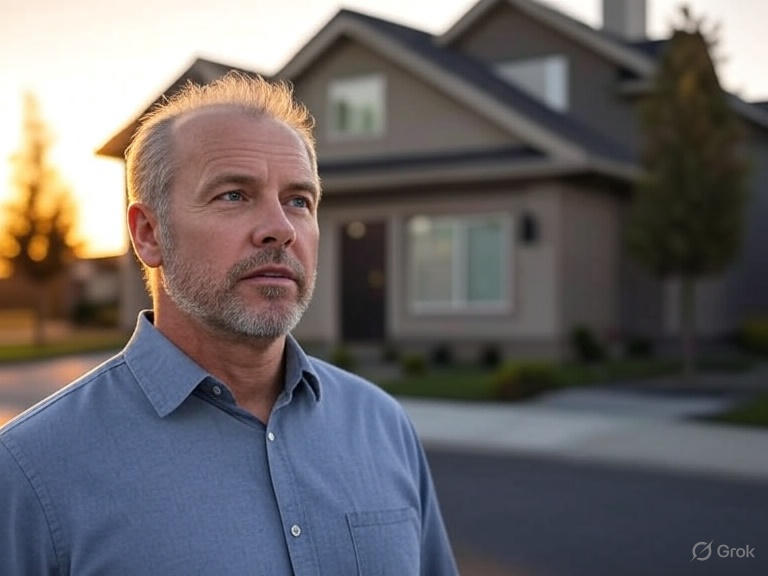Buying a house has always been one of those big, life-defining decisions. You know, right up there with choosing a career, finding a partner, or deciding whether pineapple really belongs on pizza. But with everything happening in the economy—rising interest rates, home prices that feel like they’re climbing Mount Everest, and the uncertainty about where the housing market is headed—you might be wondering: Is buying a house in 2025 still worth it? Let’s unpack this in a way that feels less like a financial seminar and more like a heart-to-heart with a friend who’s been there.

The Emotional Side of Buying a Home
Before we dive into numbers and facts, let’s be honest: buying a home isn’t just about investment. It’s about the feeling. That first moment you walk into a house and think, Yep, this could be mine. It’s like falling in love, but with walls, windows, and a kitchen island you’ll obsess over.
She said it wasn’t perfect—tiny backyard, old carpets, and the bathroom tiles that looked straight out of a 90s soap opera—but the sheer joy of calling it her space outweighed everything else. And that’s something no mortgage calculator can measure.
What’s Happening in the Housing Market in 2025?
Alright, let’s get into the nitty-gritty. The real estate market in 2025 is… complicated. Here’s the scoop:
- Interest Rates: After fluctuating wildly in 2023 and 2024, mortgage interest rates are finally starting to stabilize. They’re not at rock-bottom, but they’re not as scary as last year either.
- Home Prices: In many urban areas, prices are still sky-high. But in smaller towns and suburban regions? There’s some breathing room.
- Inventory: More homes are hitting the market compared to the pandemic years, which means buyers finally have options (and maybe a little negotiating power).
By the way, economists are saying the housing market isn’t headed for a massive crash like 2008. Instead, we’re seeing a “soft landing”—prices might cool, but don’t expect bargain-basement deals everywhere.
Is Buying Still Worth It?
Short answer: It depends on your goals.
- If you’re looking at a house purely as an investment, the returns may not be as jaw-dropping as they were a decade ago.
- But if you’re craving stability, a sense of belonging, or just want to stop paying rent to a landlord who hikes prices every year, owning still makes sense.
Renting vs. Buying in 2025
Let’s break down the eternal debate.
Renting Pros
- Flexibility to move (hello, digital nomads!).
- No property taxes or repair headaches.
Renting Cons
- Your monthly payments don’t build equity.
- Landlords can increase rent (and they usually do).
- You’re living by someone else’s rules.
Buying Pros
- Equity growth over time.
- Pride of ownership (and freedom to paint your walls neon green if you want).
- Fixed mortgage = stable payments.
Buying Cons
- High upfront costs (down payment, closing costs, etc.).
- Responsibility for maintenance and repairs.
- Less flexibility to just pack up and move.
So, should you rent or buy in 2025? Honestly, it’s like asking if tea is better than coffee—it depends on what you need in this season of life.
Common Concerns About Buying in 2025
1. What if the market crashes?
Good question. Most experts agree we’re not heading into a dramatic crash. Sure, prices might dip in certain areas, but housing remains a long-term game.
2. Aren’t interest rates too high?
They’re higher than they were during the pandemic lows, yes. But historically? We’ve seen way worse. Locking in a fixed rate now means predictability.
3. What if I can’t afford a down payment?
That’s real. But don’t assume you need 20%. Many first-time buyer programs offer options as low as 3–5%.
Personal Story: My “Almost” House
Here’s a funny one. Back in 2022, I nearly bought a home because I was tired of renting. It looked dreamy in photos, but when I toured it, the basement smelled like a wet dog, and the kitchen cabinets wouldn’t even close.
And I did. Guess what? The same house came back on the market this year, but now the price is 15% higher. Sometimes walking away hurts in the moment, but in the long run, it teaches you patience.
Expert Tips If You’re Buying in 2025
- Get pre-approved early. Sellers take you more seriously.
- Don’t stretch your budget. Just because the bank says you can borrow a certain amount doesn’t mean you should.
- Think long-term. Plan to stay at least 5–7 years to ride out market swings.
- Check local trends. National headlines are dramatic, but housing is hyper-local. A small town in Texas isn’t behaving like downtown San Francisco.
The Emotional ROI
Let’s not forget something: owning a home isn’t just about money. It’s about emotional return on investment. It’s the laughter around your dining table, the freedom to adopt that giant dog your landlord wouldn’t allow, the joy of decorating a nursery, or just sipping coffee on your porch knowing, this is mine.
Can you put a price tag on that? Not really. But it matters.
